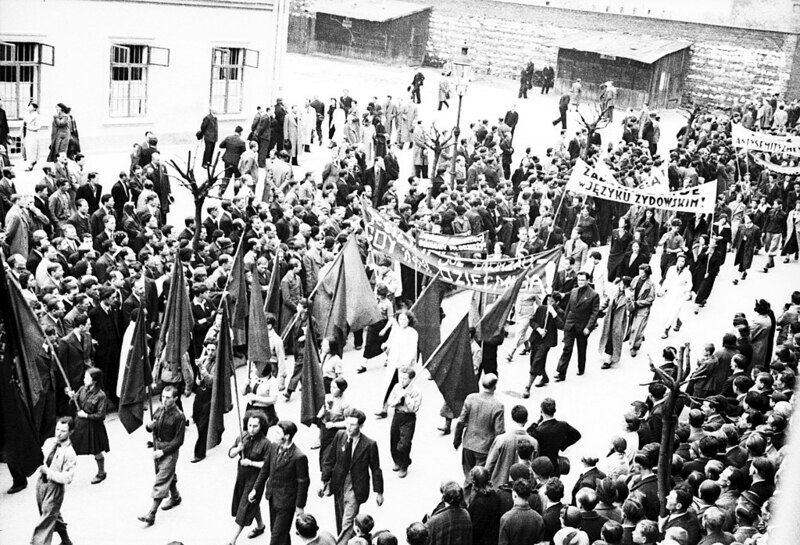Most countries of central and eastern Europe that were under the rule of communist governments held official May Day celebrations in every town and city, during which party leaders greeted the crowds. Workers carried banners with political slogans and many companies decorated their company cars. The biggest celebration of 1 May usually occurred in the capital of a particular socialist country and usually included a military display and the presence of the president and the secretary general of the party.
The National Day of the Flag of Poland is celebrated on 2 May on the basis of the amended Act on the National Emblem, Colors, and Anthem of the Republic of Poland, enacted by the Sejm on 20 February 2004. The white and red colors of the Polish flag have been with us for generations. They accompanied Greater Poland insurgents, soldiers fighting for the borders of independent Poland, and were present during state events. The Polish flag has been with us in moments of both joy and sadness. Polish flags were torn down by our occupiers, hung in Warsaw during the Uprising and painted on planes fighting in the Battle of Britain. They proudly waved over Monte Cassino, were blood-soaked during the strikes in December 1970 and welcomed the Polish Pope, to go on to be present at ‘Solidarity’ demonstrations.
3 May Constitution Day is a Polish national and public holiday that takes place on 3 May. The holiday celebrates the declaration of the Constitution of 3 May 1791. Festivities date back to the beginnings of the 19th century, but it became an official holiday only in 1919 in the Second Polish Republic. Delisted during the times of the Polish People's Republic, it was reestablished after the fall of communism in modern Poland.
"During the communists’ rule, the rivalry between the state and the Church was particularly evident during the Polish Millennium Celebrations, led by Wyszyński (who came to be known as “the Millennium Primate”) and with the entire Episcopate present, which were held on 3 May 1966 on Jasna Góra. Primate Wyszyński, as papal legate, read out a letter from Pope Paul VI to the Polish Nation and gave the Episcopal blessing. The communist authorities applied all kinds of impediments during the Millennium celebrations. There were even plans to organize concerts of The Beatles and The Animals on 3 May 1966 in Częstochowa in order to divert young people from the religious celebrations. Also on his papal visit to Poland in June 1979 John Paul II said to thousands of the faithful gathered at Jasna Góra “Here we have always been free…” (From: "The Polish Months" by Jerzy Eisler)
